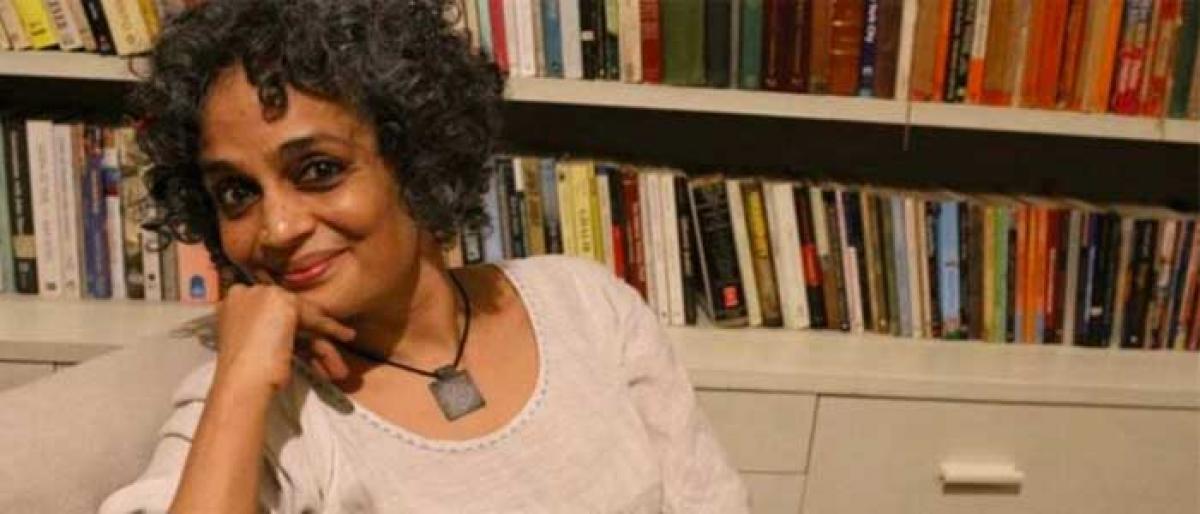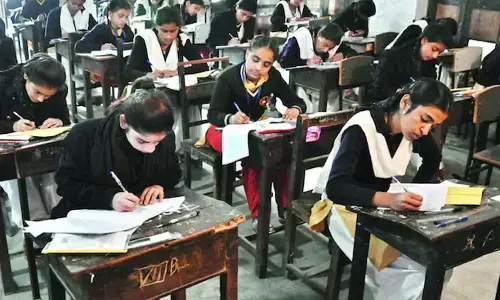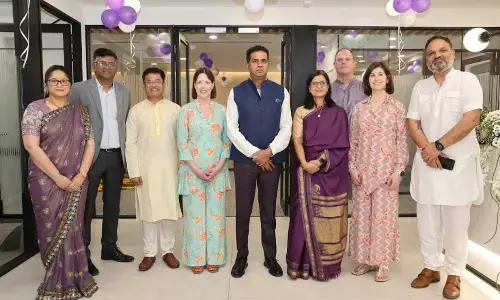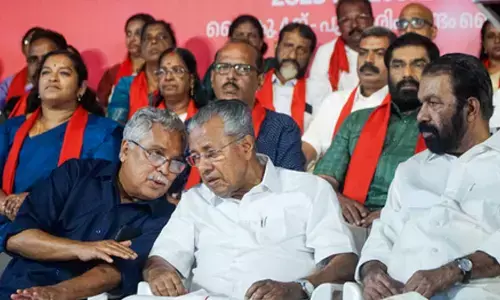Being Roy and how

As a five-year-old, she learned to stand still in one position, silently, for hours, to catch fish. \"Perhaps that\'s what made me a writer in the end,\" said the much-acclaimed Arundhati Roy, winner of the 1997 Man Booker Prize, talking of her early life and the journey to her second work of fiction, ‘The Ministry of Utmost Happiness’.
As a five-year-old, she learned to stand still in one position, silently, for hours, to catch fish. "Perhaps that's what made me a writer in the end," said the much-acclaimed Arundhati Roy, winner of the 1997 Man Booker Prize, talking of her early life and the journey to her second work of fiction, ‘The Ministry of Utmost Happiness’.
Roy was born in Meghalaya but spent a large part of her childhood in Kerala after her parents divorced.
"I grew up in a small village; there wasn't a phone or a television or restaurants or cinema halls. But a library used to send us a hundred books every three months and this was the high point of my life. I waited eagerly for the next set of books to arrive... While it wasn't a village like in the north of India, where it would have meant deprivation, there was caste segregation. There was horrible caste segregation and that is what 'The God of Small Things' was about," Roy said, recalling her first book which got her the Booker.
She says, "it was a luxury" to grow up in this fashion because her mind was not shattered by social media or SMS coming her way. "The ability to concentrate was incredible," she said.
But it was not all wonderful over there, and writing wasn't even an option for many early years of her life.
"Even though we were not at the bottom of the caste ladder, there was a sort of understanding that nobody is going to marry her and so on. It was perhaps because of this that the idea of independence started quite early for me. And then the only way you could be independent was to be financially independent, which meant do something so that you could start working really early," Roy shared.
Roy left home at 17, when the thoughts uppermost in her mind were how she would pay her rent or how she would last till the end of the month. "There were many years when writing was just not an option," Roy said, adding that at that point, it didn't seem possible that one could ever become a writer because "I spent many, many years only thinking about the money".
And then, of course, came ‘The God of Small Things’, which sold millions of copies across the world and made her famous – and financially independent. She also became the first Indian to win the Man Booker Prize for fiction and donated the prize money to the Narmada Bachao Andolan.
"The impact of winning the Booker was tremendous. It happened so quickly that I had no time to absorb what was happening. And it took a long time for me to deal with it afterwards because while it was a tremendous sense of accomplishment, at the same time – being the kind of person I am, living in a country where so many people can't read, can't eat – being successful in such an unfair and violent society is a bit complicated to deal with," she said.
Notwithstanding this complication, Roy emerged as a global phenomenon after winning the Booker – an incredible voice of fiction from a third-world country, also hailed gloriously in India.
And then, in May 1998, India conducted its second nuclear test.
"What happened was that the timing of that test was so close to the time when I was being celebrated, that for me to stay quiet was as political as saying something. If I said nothing, somehow, I was part of that celebration – a celebration that was repugnant to me," she said.
She wrote a critique of the test, ‘The End of Imagination’. Political and social Roy was born. The angst, lying dormant within her, found utterance after the bombs went off in India – and in Pakistan. "That became the beginning of another kind of journey for me," said Roy, who has since been at the forefront of many social, political and environmental struggles.
Roy's return to fiction after a gap of 20 years delves into a parallel universe inhabited by people who dictate terms to her and boss around in her house, as she curiously engages with them to see how well they get along together. This "magical bonhomie" of the novelist transpires into characters who breathe life into the pages of her fiction.
The opening of ‘The Ministry of Utmost Happiness’ ends on a thoughtful note: "Not many noticed the passing of the friendly old birds. There was so much else to look forward to." This also stands true for her tryst with writing. There has been "so much else" to make noise around her that the ethereal and sublime aspects of her creative genius often go unnoticed.
Just like this little hint that Roy left in the opening of her book – again leading the Man Booker Prize longlist – her fiction appears to be too deep to be read superficially. It is structured like an onion where layers have to be peeled to get closer to the underlying messages. It took her 10 years to write the book.
She says she allowed the plot and characters to take their own course and was never in a hurry to finish the book. For a decade, she lived with Anjum, Tilottama and other characters travelling through several universes like the Khwabgah, and taking a much bigger risk, in terms of experimentation, than ‘The God of Small Things’.
"A novel is a magical thing. It is a very layered universe. And it can only take that much time. I could not have written it faster or slower. It had its own pace and it dictated its own terms," quipped the author.
By: Saket Suman








